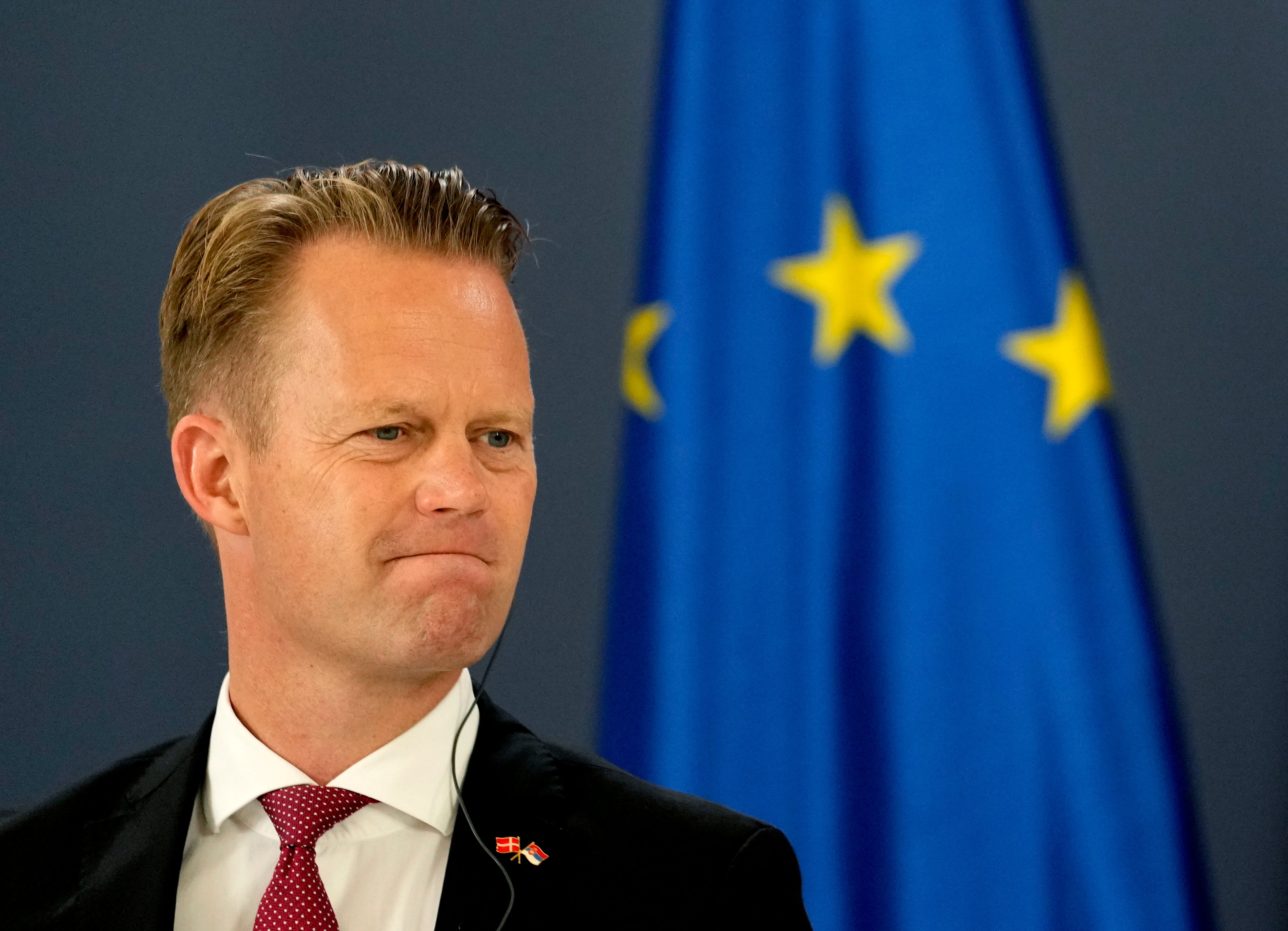Danish troops to leave Mali after call from country's rulers
Denmark's foreign minister says the country will pull its small military force out of northern Mali after the West African country’s transitional government said no permission had been given for them to deploy there

Your support helps us to tell the story
From reproductive rights to climate change to Big Tech, The Independent is on the ground when the story is developing. Whether it's investigating the financials of Elon Musk's pro-Trump PAC or producing our latest documentary, 'The A Word', which shines a light on the American women fighting for reproductive rights, we know how important it is to parse out the facts from the messaging.
At such a critical moment in US history, we need reporters on the ground. Your donation allows us to keep sending journalists to speak to both sides of the story.
The Independent is trusted by Americans across the entire political spectrum. And unlike many other quality news outlets, we choose not to lock Americans out of our reporting and analysis with paywalls. We believe quality journalism should be available to everyone, paid for by those who can afford it.
Your support makes all the difference.Denmark will pull its small military force out of northern Mali after the West African country's transitional government said no permission had been given for them to deploy there, the Danish foreign minister said Thursday.
The government in Bamako under coup leader Col. Assimi Goita, on Wednesday told Denmark to withdraw its 90-person contingent, which arrived in Mali just a week earlier for a one-year deployment under a European counterterrorism operation.
Danish Foreign Minister Jeppe Kofod announced the pullout Thursday, following a briefing of parliament's foreign policy committee. The minister didn't provide a timeline.
“Last night, the coup generals (in Mali) sent out a public statement where they reiterated that Denmark is not welcome,” he said. "That we will not accept. We have therefore decided, after consultations in the foreign policy committee — and there is backing there — that we pull our troops out.”
The Danish contingent includes special operations soldiers, a surgical team and support personnel.
Kofod also said Denmark will “continue the good and close cooperation with our European allies” and keep the pressure on Mali’s rulers “to get democracy back, to create safety for the population in Mali, to fight the terror groups.”
On Wednesday, the countries behind the 15-nation European Task Force Takuba that is in Mali on a counterterrorism operation said the Danish presence is legal, and called on Bamako “to respect the solid grounds on which our diplomatic and operational cooperation is based.”
The statement expressed “deep regret” that Mali claimed the Danish deployment lacked a proper legal basis and consent from the Malian government.
The Danish Foreign Ministry earlier had said Mali's former president, Ibrahim Boubacar Keita had requested in 2019 that Denmark send troops to join the Takuba effort. But less than a year later, Keita was deposed in a military coup.
The ministry said the Danish contribution also had been approved by the current transitional government led by Goita.
Mali's government spokesman Col. Abdoulaye Maiga, said Wednesday that a Danish request to deploy troops had been under consideration but not approved.
“No agreement has authorized the deployment of Danish special forces as part of the Task Force Takuba,” it said.
After seizing power in August 2020, Goita initially pledged to uphold Mali’s international agreements but recently has shown signs of reluctance, at one point even temporarily grounding U.N. peacekeeping flights in the north.
Over the past 18 months, Goita has solidified his control, naming himself president of the government that was supposed to organize new democratic elections by the end of next month. Now Goita says that won’t happen until 2024, prompting Mali’s neighbors to impose punishing economic sanctions this month.
Mali has been battling an Islamic insurgency in the north since 2012, and former colonizer France led a military operation in 2013 to force the insurgents from power in the major towns of northern Mali.
___
AP writer Carley Petesch in Dakar, Senegal, contributed.